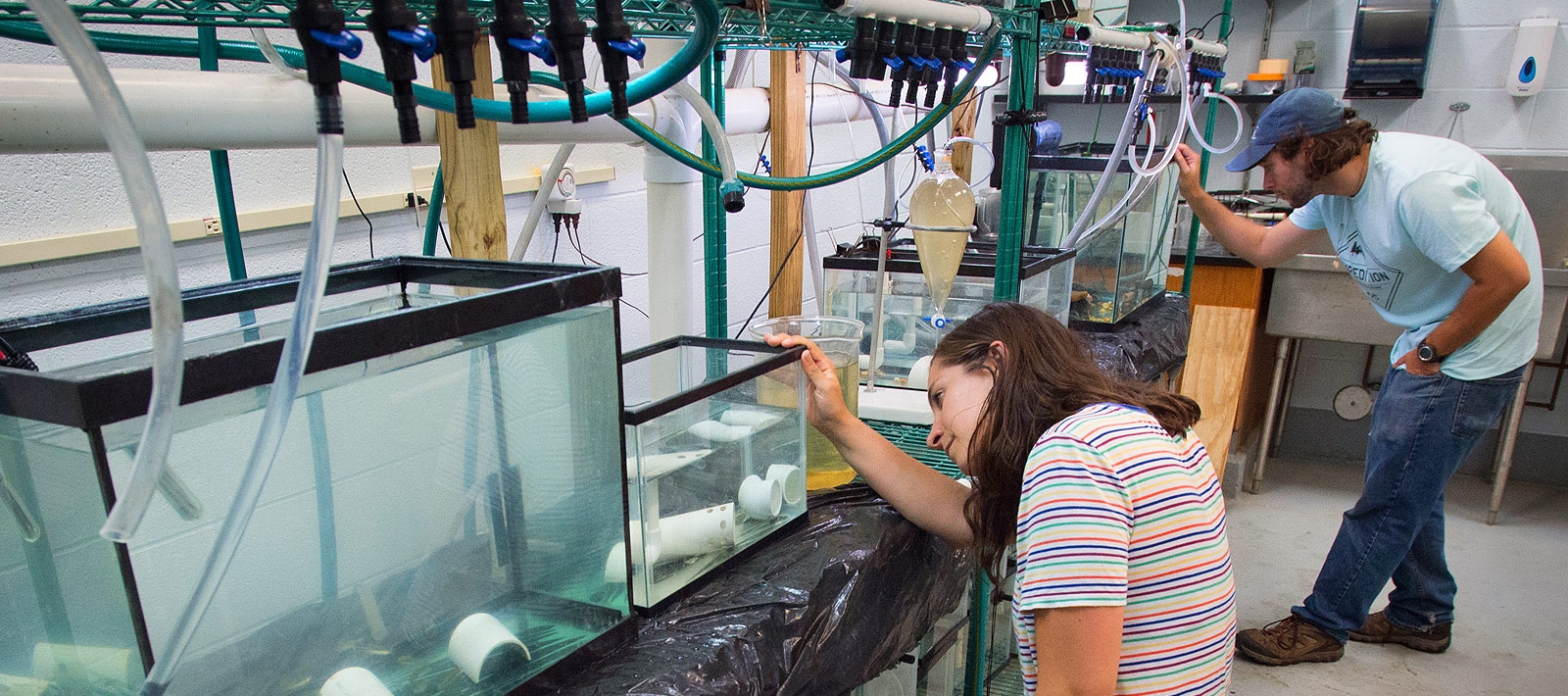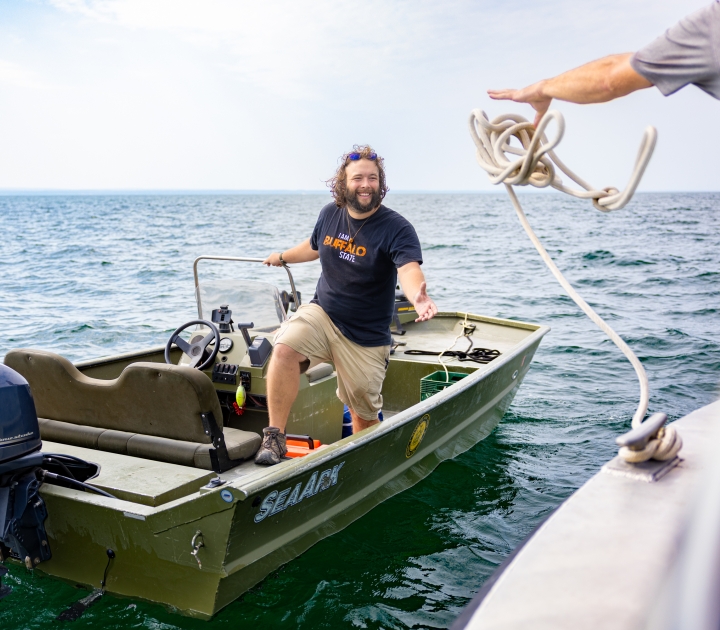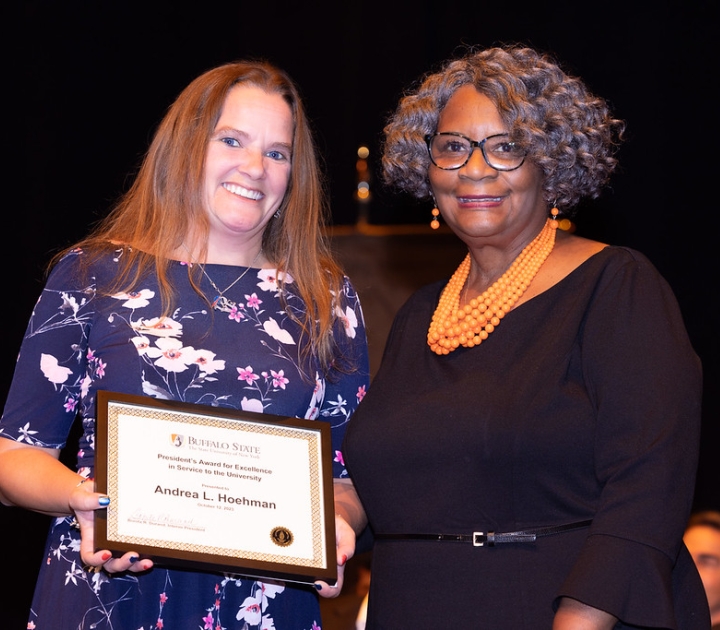
About Great Lakes Environmental Science
Environmental science is the study of how natural and human-made processes affect the environment. Environmental scientists work in many federal agencies, including the National Park Services, the National Oceanographic and Atmospheric Administration, and the Department of Energy. County health departments, universities, and the private sector also hire environmental scientists.
Buffalo State’s two graduate programs in Great Lakes Environmental Science prepare students specifically to address problems and issues related to ecosystems and functions within the Great Lakes and surrounding watersheds
Degree Information
GLES M.A.: Graduates are prepared for advanced research, professional employment, or study at the Ph.D. level.
GLES M.S.: Students are prepared for leadership roles in industry, consulting firms, nongovernmental organizations (NGOs), and governmental agencies that deal with the management of resources within the Great Lakes and surrounding watershed.
Environmental scientists work in applied fields and interdisciplinary settings analyzing the effects that humans have on our environment and the plants and animals that populate it. From agriculture to healthcare to industry, environmental scientists teach, research, and work in business to help humans understand our work. Some of the positions you can get with an advanced degree in environmental science include:
- Environmental chemist
- Environmental consultant
- Environmental protection specialist
- Environmental science teacher
- Environmental specialist
- Environmental technician
- Marine biologist
- Microbiologist
- Oceanographer
- Wildlife biologist
GLES M.S. students must do an internship during the second year of their program. GLES M.S. interns have:
- Studied invasive species
- Designed restoration projects
- Contributed to watershed management
- Studied macroinvertebrates in the Great Lakes watershed
The Great Lakes Center
Located four miles south of Buffalo State's main campus, the center’s field station, fleet, and field equipment provide access to Lake Erie, the Buffalo River, and the Niagara River. This is a prime site for students who wish to study how humans both create and resolve ecosystem-scale problems, especially those related to freshwater systems.
Small Class Size
The graduate program is small, which means classes are intimate and students get to know their professors and find great networking opportunities both on and off campus.
Stellar Faculty
Faculty who teach within the program are professional biologists, environmental scientists, and ecological researchers with years of field experience.


